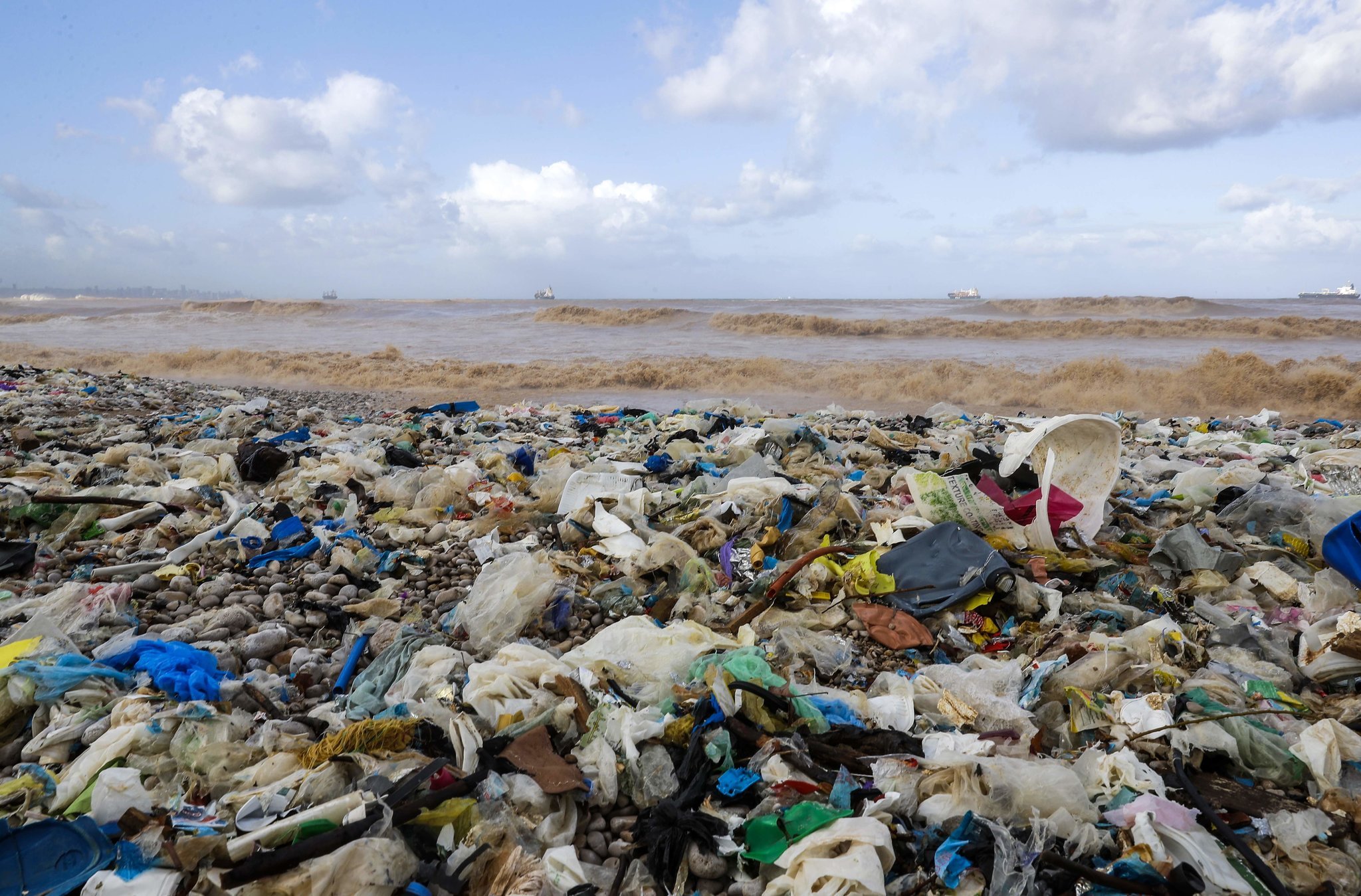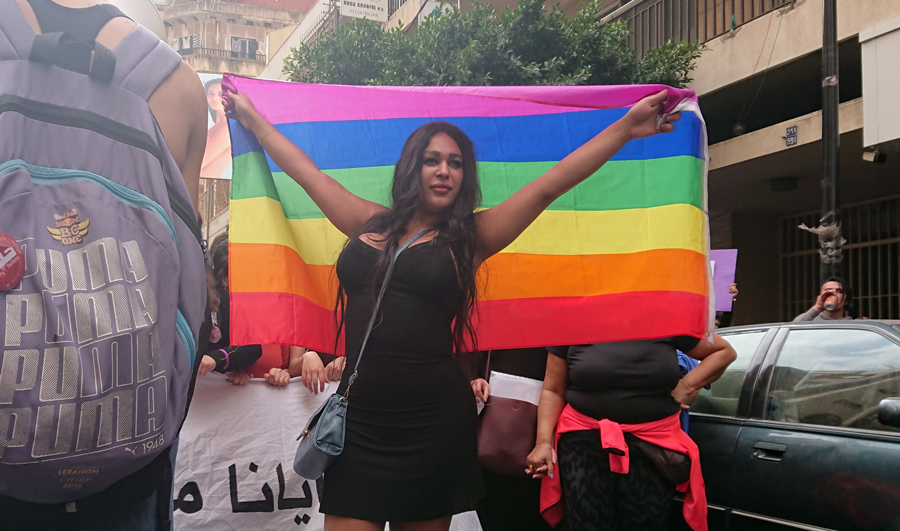It only took a few minutes for my “it’s good to be back” bubble to burst, 20 minutes into the taxi drive back home to be exact. It was around 12:30 am. We had just returned from Abu Dhabi where the Lifehaus team was among many other sustainability-driven projects exhibiting at the World Future Energy Summit. Our morale was high; people had expressed interest in our project, a project that was largely propelled by the 2015 Lebanon waste crisis.
“We heard there was a storm,” I told the cab driver. Small talk, I thought, would put me at ease. After all, it was late and I was the sole passenger. The ride home would take another 30 minutes or so, and I was both exhausted and anxious.
“Yes,” he politely and gently responded, probably sensing my discomfort. “Both my children are now sick.”
“Oh, it’s just the flu… kids bounce back in no time and it’s good for their immunity system,” I blurted without thinking, to which he responded:
“I’ll tell you my story (ra7 khabrik esste).”
I didn’t catch his name. In hindsight, I may have been too embarrassed to ask. But I did catch his daughter’s: Marina.
“My 4-year-old was diagnosed with cancer and is only now beginning to recover,” he said as he showed me her photo on his mobile phone, “so we have to do our best to keep her healthy. Any illness, even a common cold or flu, or an allergic reaction to unclean air could really set her back.”
I wasn’t prepared for that and felt a lump in my throat. She looked frail and weak. In one photo she donned a Snow White dress. On her head was a carefully positioned oversized wig.
“She wanted to be a princess for Halloween,” he said. “She was so happy to wear that dress.”
Trying to understand what could have brought about such an illness to such a young child, I inquired: “Does cancer run in the family? What did doctors have to say?”
“No… We, like many other Lebanese, only have hypertension and heart disease in our family … we have no idea what may have caused this, but if you go to St. Jude [CCCL], you’ll see so many sick kids, hundreds of them. It’s truly heartbreaking.”
***
Just hours into the morning following our arrival, the winter storm resurfaced the longstanding waste crisis with photos of heaps of putrid trash washed ashore once again making international headlines. The outrage brought back memories of a time when thousands took to the streets to demand an effective solution.
Like many others, we (what would eventually become the Lifehaus team) took part in the 2015 garbage-fueled protests. The country was literally drowning in trash (arguably more noticeably than it is now), and we thought there had to be another way.
A few weeks later, we decided that protesting alone, especially that demands were constantly changing, wasn’t going to cut it and instead started working on what would become the Lifehaus project.
The Lifehaus, as some of you may already know, is a fully self-sufficient home made from natural, recycled and upcycled material. The project, for which I serve as a media officer, promotes sustainability and eco-friendly living from start to finish. It produces its own electricity, catches and recycles its own water and significantly reduces the waste output of its inhabitants.
“Fuck it. If the government is not going to give us the water and power we need and isn’t going to protect our environment and health, we’re gonna do it ourselves.” That was the main driving philosophy behind the project. 3 years later, we’re halfway there.
Tires, glass bottles and other recyclables that would otherwise end up in our landfills and seas (because apparently to the government, they’re the same thing), are substituting in large part conventional construction materials.
The water is used four times, power is solar generated, and of course, once complete, inhabitants will be provided with the means to control their own waste output via composting and sorting from the source. The home’s wastewater is even self-managed through the use of septic tanks.
In other words, the project like many other local initiatives looks to solve the countless waste and energy-related problems facing the country. But, it’s not enough. Not when decision makers are going in the opposite direction.
According to a recent Human Rights Watch report, 617 municipal solid waste uncontrolled dumps are scattered across Lebanon, over 150 of which are openly burning trash at least once a week.
“It’s like there’s fog across the whole town,” HRW quotes Othman, a resident of Kfar Zabad who is identified only by his first name, as saying. “We are coughing all the time, unable to breathe, sometimes we wake up and see ash in our spit.” He’s just one of many other examples cited in the report.
“Older people and children are most at risk. Doctors say the burning leads to respiratory illnesses and could increase the risk of developing cancer as a result of sustained inhalation of smoke,” a follow-up HRW petition warns.
Unborn children are at risk too. According to a study published in the British Medical Journal, “[p]ollution in the womb is now linked to low birth weight, disruption of the baby’s lung and brain development, and a series of debilitating and fatal diseases in later life.” Three times as many deaths are caused by pollution as by Aids, malaria and tuberculosis combined, another report published in the Lancet, says.
About 90% of Lebanon’s solid waste is composed of materials that could be composted or recycled, but only 8% is being recycled and 15% composted. These numbers are not only shocking but show how preventable dumping and open burning is.
***
-“I’m really sorry your daughter is going through this; I can’t imagine what it’s like…”
-“We’re grateful she’s still with us; other parents aren’t so lucky.”
On that note, the taxi driver and I exchanged our final goodbyes before he would go on to continue his nightshift. Providing for one’s family in this economy can’t be easy, let alone when medical bills are involved.
And while I cannot personally conclude beyond a shadow of a doubt that Marina’s cancer was caused by open burning and/or other forms of pollution, what I can say is that at this rate it’s definitely not helping.
The open burning, which disproportionally takes place in lower income areas, releases dangerous particles with potentially severe health effects, according to researchers at the American University of Beirut. Dumping garbage freely into the sea and on land pollutes precious water resources we so depend on.
Pollution, including the open burning of waste, violates Lebanon’s own environmental protection laws, the Environment Ministry says. The government’s lack of effective action to address the issue also violates the country’s obligations under international law, including the government’s duties to respect, protect, and fulfill the right to health.
But, as far as international law and duty are concerned, particularly when it comes to Lebanon, talk is cheap. Meanwhile, the people and the environment continue to pay the price.
Such is the reality for many people in Lebanon. People like 87-year-old Adib Nouwar who at one point had to wear an oxygen mask at all times because of the open burning outside his Dekwaneh home. People like Rozine Moughalian, a 56-year-old mother of two who was diagnosed with sub-acute liver failure, the cause of which is likely to have been her exposure to high levels of toxins from the nearby Bourj Hammoud landfill. People like the hundreds of fishermen whose livelihood has been drastically affected by coastal dumps. People like those interviewed by Human Rights Watch, who all complained about the level of air pollution around their homes. And people like Marina.
Elections are coming up, and that might be our only hope to make this issue a priority once again. Constituents must call on their respective political parties, municipalities, representatives and whoever is looking to run to get serious. In other words, do whatever it takes to get the trash crisis back to the forefront and put an end to decades of waste mismanagement. Because Marina, Adib, Rozine, Othman and countless others aren’t the exception, we are, and it’s only a matter of time. We owe them and all those whose health has been compromised that much.
There has to be life after trash, for us, for the ecosystems that support us, for the animals both on land and in the sea. But not for a government that doesn’t put the well-being of its people first. We can’t keep doing the same thing and expect different results.


